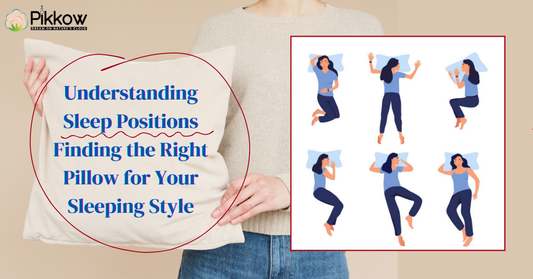Back pain is one of the most common health problems today, affecting millions worldwide. While lifestyle factors like poor posture or long hours of sitting are often blamed, your mattress could be the hidden culprit. Understanding why mattress cause back pain and choosing the right bedding can make a huge difference in your sleep quality and overall health.
How Mattresses Can Cause Back Pain
Your mattress plays a vital role in keeping your spine aligned while you sleep. A mattress that fails to provide adequate support can lead to:
- Morning stiffness and aches
- Persistent lower back pain
- Poor posture over time
Essentially, mattress problems and back pain are closely linked. Even a high-quality mattress can cause discomfort if it doesn’t match your body type or sleeping position.
Common Mattress Issues That Lead to Back Pain
Different types of mattresses come with unique benefits and drawbacks. Understanding them can help you prevent mattress and back pain.
1. Issues With Synthetic Mattress
Synthetic mattresses, made from materials like polyurethane foam or polyester blends, are often affordable but may cause discomfort due to:
- Poor breathability leading to night sweats
- Early sagging and loss of support
- Misalignment of the spine due to insufficient firmness
2. Memory Foam Mattress
Memory foam mattresses conform to your body and relieve pressure points. They are popular for those suffering from lower back pain. However, memory foam mattress for back pain can sometimes:
- Retain heat, making sleep uncomfortable
- Be too soft for heavier individuals, reducing support
3. Latex Mattress
Latex mattresses offer natural durability and excellent spinal support. A latex mattress for back pain provides:
- Balanced support and comfort
- Pressure relief for shoulders and hips
- Resistance to sagging, making it one of the best mattress for back pain
Mattress Firmness and Its Effect on Back Pain
Choosing the right mattress firmness is crucial. Here’s how different types affect your back:
|
Mattress Firmness |
Effect on Back Pain |
Recommendation |
|
Soft |
Can cause your spine to sink |
Avoid if you have lower back pain |
|
Medium-Firm |
Supports natural spinal alignment |
Ideal for most sleepers (medium firm mattress for back pain) |
|
Firm |
May create pressure points |
Suitable for heavier sleepers |
Understanding mattress firmness and back pain is essential to prevent chronic discomfort.
Signs Your Mattress May Be Causing Back Pain
Knowing when your mattress is the problem can save you a lot of pain. Look for:
- Sagging spots on the mattress (sagging mattress back pain)
- Waking up with stiffness or aches
- Worsening pain despite stretching or exercises
- Uneven sleeping surface affecting posture
Even high-end mattresses can become problematic over time. An old mattress causes back pain more often than many realize.
How to Overcome Mattress-Related Back Pain
There are several solutions to prevent or reduce mattress cause back pain:
1. Choose the Right Mattress
Consider:
- Material: Memory foam, latex, or hybrid
- Firmness: Medium-firm is recommended for spinal alignment
- Durability: High-quality mattresses last longer and provide consistent support
2. Improve Mattress Support
- Use a strong bed frame or slatted base
- Consider mattress toppers for added comfort and support
- Ensure even weight distribution
3. Replace Old or Poor-Quality Mattresses
- Sagging, lumps, or worn-out materials can cause chronic pain
- Invest in a best mattress for back pain that suits your sleeping style
Tips for Maintaining a Healthy Mattress
Maintaining your mattress can prevent early mattress problems and back pain:
- Rotate your mattress every 3–6 months
- Use a mattress protector to reduce wear and tear
- Clean regularly to maintain hygiene and comfort
- Check for signs of sagging or deterioration
Conclusion
Understanding why mattress cause back pain is key to achieving restful sleep and protecting your spine. Whether it’s an old mattress, incorrect firmness, or poor material, the right mattress can prevent chronic pain. For long-term relief:
- Choose a medium-firm, high-quality mattress
- Focus on proper support and alignment
- Replace mattresses that are old, sagging, or causing discomfort
Investing in a mattress solution for back pain is an investment in your health and well-being.
FAQs
1. Can a mattress really cause back pain?
Yes. Poor support, sagging, or incorrect firmness can lead to chronic back discomfort.
2. What type of mattress is best for back pain?
Medium-firm memory foam or latex mattresses are often recommended for optimal spinal support.
3. How long does a mattress last before causing back pain?
Typically, 7–10 years. An old mattress causes back pain due to wear and sagging.
4. Can synthetic mattresses cause back pain?
Yes. Issues with synthetic mattress like poor durability and lack of support can contribute to pain.
5. How can I overcome mattress-related back pain?
Choosing the right mattress, improving support, and replacing old or worn mattresses are effective solutions (how to overcome mattress illness).











